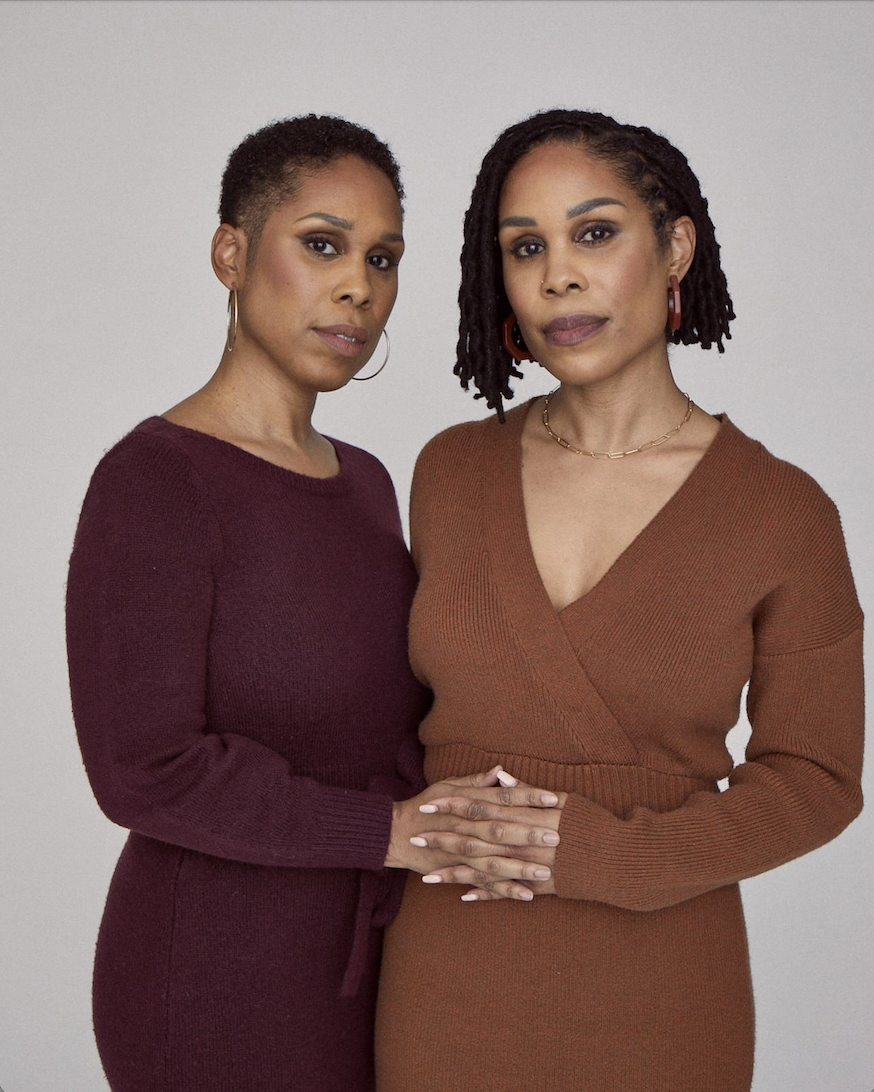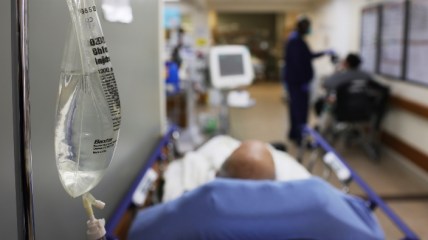Twin doctors fight for health equality for African Americans
The New York-based physicians advocate for the physical and mental health of Black people, especially after a devastating pandemic further impacted health outcomes
New York doctors and twin sisters Dr. Uché Blackstock and Dr. Oni Blackstock are at the forefront of health justice and the fight against COVID-19.
Dr. Uché Blackstock is a board-certified emergency medicine physician who founded Advancing Health Equity in 2019 to partner with healthcare and related organizations to confront racism in healthcare and to eradicate racial health inequities.
Dr. Oni Blackstock is a primary care and HIV physician who is the founder and executive director of Health Justice, a consultancy that supports health-related organizations to center anti-racism and equity in the workplace and to reduce health inequities in the communities they serve.
Since COVID-19 hit, the Blackstock sisters have been at the front lines during the pandemic, educating Black people and people of color about the coronavirus, debunking myths about the vaccine, and making sure those disproportionately affected by COVID receive the best outreach and care.

Their passion for healthcare and justice came from witnessing their late mother, Dr. Dale Blackstock, who was also a physician.
“She’s the original Dr. Blackstock,” Dr. Oni Blackstock tells theGrio. “Our mom grew up on welfare and was raised by a single mom. It was her and her five other siblings. My grandmother really impressed upon them the importance of education. [My mother] often talked about how embarrassing it was to wait on line at the welfare office and having to put cardboard on the bottom of her shoes because the soles had worn out. So they didn’t have a lot, but education was super important.”
While attending Brooklyn College, Dale had a mentor who took a lot of the Black and brown students under his wing and he encouraged her to go to medical school.
“She got into Harvard Med School and [when] she went, she was a total fish out of water,” Oni says. “She came back to Brooklyn where she was from, and she spent her career at Kings County Downstate as a kidney doctor. My sister and I basically grew up at Kings County Downstate. We went to community health fairs with her. For her, so much of being a physician was also about being a community advocate.
And so we were always at community health fairs. She was always giving talks about kidney disease, high blood pressure to people in the community. Our parents were also part of the Pan-African movement in the 70s, so we were always at anti-apartheid and anti-police brutality marches. So it makes sense that we end where we are.”
Dr. Oni shared what inspired her dedication to the specific concerns of HIV/AIDS patients.
“I’m a primary care and HIV physician. And I think for me, HIV has always been the lens through which I have seen the world,” she explains. “So when we look at HIV in the United States and the people who are most impacted, especially over time, we’re seeing more and more Black and brown people. So gay men, trans women, cisgender women.
Having that lens and thinking about the ways in which we see the intersections of racism, sexism, transphobia, homophobia, are all placing people at risk for HIV. Then once they have HIV, making it hard for them to engage in care. It really made me decide to want to address how we begin to dismantle racism and sexism in these systems of oppression that place our communities at the highest risk.”
She continues, “My last job before starting my firm, Health Justice, was at the New York City Health Department as an assistant commissioner where I led the New York City Health Department’s response to the HIV epidemic.”
“And in that work, [I] ended up starting a racial equity and social justice program because we realized that as we were trying to address HIV in the city, that we weren’t dealing with the drivers of HIV, we weren’t dealing with the fact that young Black gay men were struggling to find employment. They’re struggling to find housing and they’re dealing with a great deal of stigma. So how do we begin to address some of these structural and social determinants of health?
And I should also say I was inspired, of course, by the work that my twin sister E.J. was doing with her firm advancing health equity. I also had a number of other colleagues and people close to me who were also in the racial equity space, really helping to move us along the path of racial equity towards justice. And I was like, I really want to be a part of this transformational change.“
Find out more about the sisters and watch them pay tribute to each other in the video above.
Have you subscribed to the Grio podcasts, Dear Culture or Acting Up? Download our newest episodes now!
TheGrio is now on Apple TV, Amazon Fire, and Roku. Download theGrio today!


